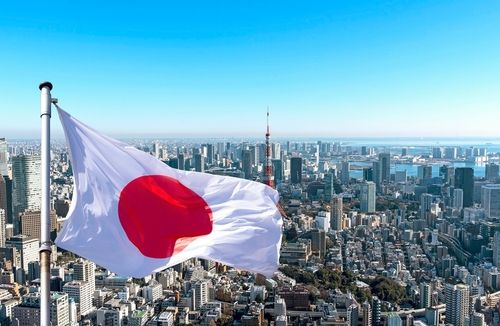Japan loses top global creditor spot to Germany
- Gold Price Forecast: XAU/USD holds positive ground above $4,100 as Fed rate cut expectations rise
- Australian Dollar receives support following cautious remarks from RBA Hauser
- Gold draws support from safe-haven flows and Fed rate cut bets
- Australian Dollar declines as US Dollar gains amid nearing government shutdown end
- CoreWeave Q3 2025 Earnings Analysis: Short-Term Hypergrowth vs. Long-Term Leverage Risks—Trading Opportunity or Trap?
- USD/JPY tests 155 as Tokyo fix buying lifts pair – ING

For the first time in 34 years, Japan has relinquished its position as the world’s largest creditor nation, overtaken by Germany, according to data released by Japan’s Ministry of Finance.
Even though Japan’s net external assets reached a record level, the stronger euro, the yen depreciation, and Germany’s export-led surplus also tilted the balance.
At the end of 2024, Japan’s net external assets were ¥533.1 trillion (about $3.73 trillion), its Ministry of Finance said on Tuesday. The figure was up nearly 13% from last year, indicating an increase in foreign investment by Japanese companies.
But Germany’s net external assets grew even steeper to ¥569.7 trillion ($3.99 trillion). That makes Germany the largest creditor nation on the planet.
China held third place, with net external assets of ¥516.3 trillion ($3.62 trillion).
Germany’s rise to the top is largely due to its huge current account surplus. In 2024, it rose to $282.99 billion, boosted by robust exports, particularly of luxury machinery, automobiles, and industrial equipment.
By contrast, the surplus in Japan’s current account was ¥29.4 trillion, or about $205 billion. That’s a healthy number but nowhere near enough to keep up with Germany.
Weak yen fuels Japan’s asset growth, but not enough to lead
The devaluation of the yen was a big factor behind the growth of Japan’s foreign assets. The value of assets in the currencies appreciated when they were converted back into yen as the yen weakened against the euro and dollar.
The yen fell roughly 11.7% against the U.S. dollar in 2024 and 5% against the euro. This caused euro-denominated German assets to look much larger in yen terms.
Although Japan posted strong figures, Germany’s surge in external surplus combined with favorable currency movements ultimately gave it the edge.
Trade pressures push Japan to invest overseas
Japanese businesses maintained their momentum of aggressive overseas investments in 2024, especially in finance, insurance, and retail. The United States and the United Kingdom remained key targets for these investments.
Mergers and acquisitions overseas by Japan saw particularly strong growth. Such investments helped boost overall foreign assets but may not result in short-term gains.
In the future, Japan’s status as a global creditor will hinge on how its companies fare in the global economy, particularly as rising geopolitical tensions and evolving tariff rules loom.
President Donald Trump’s resurgence and trade policies may also influence where and how Japanese companies invest more. Some may move manufacturing or assets to the United States as an insurance policy against future tariffs or other trade blocks.
Japan is still one of the world’s most fiscally solid countries. However, whether the country can sustain its economic success is uncertain, as longer-term challenges, such as the impact of an aging population, stubbornly low wages, and persistent deflation, threaten to hobble its economic growth over the long term.
Read more
* The content presented above, whether from a third party or not, is considered as general advice only. This article should not be construed as containing investment advice, investment recommendations, an offer of or solicitation for any transactions in financial instruments.



